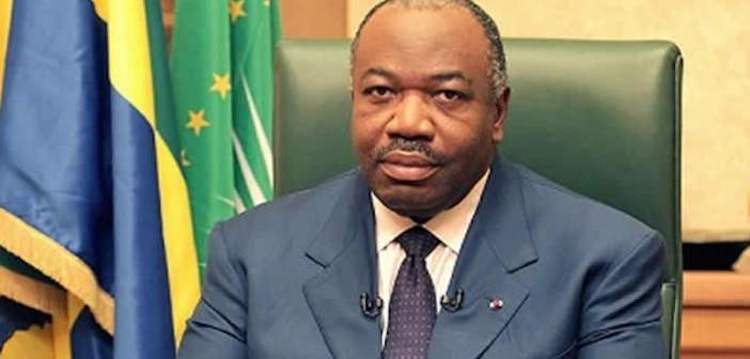By Lisa Vives, Global Information Network
NEW YORK (IDN) – Balloons and fireworks will have to wait as the longtime President of Gabon has been hospitalized at the King Faisal hospital in Riyadh, Saudi Arabia, suffering from severe fatigue.
The party of President Ali Bongo Ondimba had just “coasted to victory” in a second round of legislative elections in October 2018 when the President fell ill. A medical and a diplomatic source both told the Reuters news agency that the president had suffered a stroke, but government officials disputed the story.
“Bongo is feeling better and has been told to rest,” said government spokesman Ike Ngouoni, warning citizens to be vigilant and avoid “fake news.”
President Bongo’s key rival, Jean Ping, boycotted the election – the first since a presidential election two years ago spoiled by deadly violence and fraud allegations. This latest round of polls also brought complaints from opposition candidates who cited attempts to buy votes and missing ballots.
Turnout was low – only 28 percent in the province where nearly half the population lives. Bongo’s party won 74 seats in the National Assembly, the next vote getter won 3 seats and 4 opposition candidates won one seat each.
The 59-year-old president had been in Saudi Arabia to attend the Future Investment Initiative conference where he was scheduled to speak alongside other African leaders but was not seen during the discussion.
Saudi Crown Prince Mohammed bin Salman visited him in the hospital that evening, the official Saudi Press Agency said on October 25.
Bongo’s family has ruled the oil-rich central African nation for nearly half a century. The West African country, wedged between Congo Brazzaville and Cameroon, is the sixth largest oil producer in sub-Saharan Africa and has the region’s fifth largest oil reserves.
In spite of its oil wealth, approximately one-third of the country’s 1.5 million people live below the poverty line. This has been blamed on unemployment (one in five out of work), an overdependence on oil for export, few jobs for locals, and one of the highest rates worldwide of students required to repeat grades.
Notwithstanding its economic problems, Gabon and its leadership has been praised by the United Nations Development Programme (UNDP) and the U.S. State Department.
In his opening remarks at Africa Adaptation Initiative (AAI) High-Level Partners Roundtable in September 2018, UNDP Administrator Achim Steiner commended “the leadership of Gabon, particularly President Ali Bongo Ondimba” as the Chair of the Africa Union’s (AU) Committee of African Heads of State and Government on Climate Change (CAHOSCC) and the AU’s “Champion for the AAI”.
“Gabon’s firm commitment to climate action was exemplified by President Bongo’s announcement at the One Planet Summit in Paris last December (2017) of a USD$500,000 contribution to the AAI – thereby being the first African nation to contribute financially to the initiative. And UNDP was honoured to be asked to receive that contribution on behalf of the AAI and put it straight to work,” Steiner said.
Relations with the U.S. are underlined by the fact that in recent years over 90 percent of Gabon’s oil output has been exported, mainly to the United States. Most foreign investment, including U.S. investment, is concentrated in the oil and extractive sectors.
Gabon is eligible for preferential trade benefits under the African Growth and Opportunity Act (AGOA). U.S. exports to Gabon include machinery, agricultural products, vehicles, and optical and medical instruments. U.S. imports from Gabon include crude oil, manganese ores, agricultural products, and wood.
Relations between the U.S. and Gabon are “excellent”, says the U.S. State Department’s fact sheet. The U.S. applauds Gabon’s efforts to increase regional cooperation on environmental issues, while at the same time urging Gabon to take bold steps to root out corruption and to reform the judiciary and other key institutions to ensure the protection of human rights, adds the fact sheet.
Besides, Gabon and the U.S. are stated to “share a commitment to diversify and strengthen Gabon’s economy, expand bilateral trade, ensure security in the Gulf of Guinea, and combat wildlife trafficking”.
The U.S. works extensively with Gabon on conservation through the U.S. Fish and Wildlife Service and collaborates with large donors, including UN Development Program, UNAIDS, UNICEF, and the European Union, on transparency, health, anti-trafficking in persons, and anti-corruption programs.
Grants through the Ambassador’s Special Self-Help Fund assist civil society organizations. U.S. assistance to Gabon also seeks to improve the professionalism of the country’s military officers and senior enlisted personnel by providing training that will help prepare the military to operate effectively in regional peacekeeping and security efforts.
“Notably, the United States Marine Corps and Navy trained the Gabonese in counternarcotics tactics and anti-poaching initiatives. Gabon, a leader in maritime security efforts, is a participant in the Africa Partnership Station program supported through the Africa Maritime Security Initiative,” says the U.S. State Department. [IDN-InDepthNews – 30 October 2018]
Photo: Gabon President Ali Bongo. Source: polisonline.com.ng
IDN is flagship agency of the International Press Syndicate.
facebook.com/IDN.GoingDeeper – twitter.com/InDepthNew

